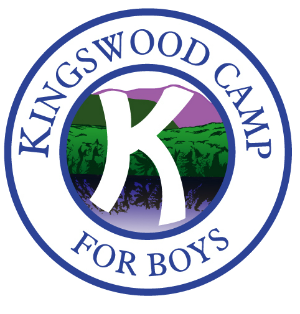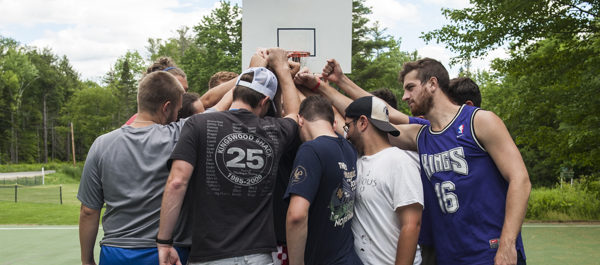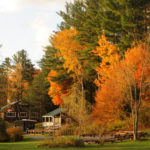The Value of Camp Counseling
THE VALUE OF CAMP COUNSELING
It was nearing darkness on the first night of camp many years ago, when suddenly there was a knock on my director’s cottage door. There stood one of my first-year counselors, a young man twenty-one years old. “My campers are going crazy,” he acknowledged, “and I have absolutely no idea what to do about it.”

Back in those days, just about anyone who wanted a summer camp counseling job could get one, and especially persons of legal age, who could drive vehicles and pilot motorized watercraft. They went through a week’s worth of orientation meetings, where disciplining campers topped the list of lectures and panel group discussions. Clearly, that superficial preparation went out the window as the reality of the situation struck this poor lad.
Clearly, camp counseling provides more real-world challenges and responsibilities than virtually any other first time job or internship. Accordingly, in the modern camp culture, most camps do a far better job at acclimating new staff to the challenges ahead. At Kingswood, for example, our staff manual features a lengthy appraisal of “that first night” and cites to the smallest of details, the protocol to be followed in the initial cabin meeting of the session.
Furthermore, at our camp, most staff come to us internally, by the process of boys evolving from “Guides” at the high school freshman age to Counselors-in-training after the sophomore year. By the time they hop into that trench of actuality, they are properly steeled to the occasion before them.
Indeed, we start speaking to campers two years before the fact on the various appeals of becoming a camp counselor. We always preface our commentaries with the idea that “If this does not flip an instinctive switch for you, then maybe your camp career is winding down, and no hard feelings!” Actually, the “we” in the past sentence is usually this writer and I can tell by their mannerisms from the get-go which people are more interested about what comes next. Next, indeed, is the enumeration of all the plusses of being a camp man versus, for example, being an intern thanks to some acquaintance of mom or dad.
The first thing I like to mention is that being a counselor is fun. Fun not so much in the sense that a person is away from home, beyond the control of parents, and in an appealing natural environment, though those are incentives worth mentioning. No, the real pleasure comes from being truly “in charge” of something and somebody. “It might be fun to play basketball,” we tell them, “but you have not experienced anything durable until you coach basketball, and win or lose, endear yourself to your charges.” Not only is the counselor a hero to his players, he also becomes a role model to them, a parental surrogate. Not just the coaches, but the art teacher, the water-ski instructor and the head of the hiking trip as well – they all feel this swell of happiness when granted legitimate authority over matters at hand.
Some people just “must” come back to camp year after year, and become quite depressed when competing life challenges puts an end to the camp years. Yes, the validity of the assignment as outlined above is a prime consideration. Yet, I think there is more to it than this. Camps are like fraternities or clubs and young people find it most inspiring to be in a workforce that adheres to a common goal and abides by a substantive and community-driven philosophy. When that often leads guys to spend their free time celebrating camp and life with their peers, good values harden. What parent would not want his child of this age to be hanging out with others, often older and wiser than him, and talking about the campers under mutual care, the challenges of making things “work” and the fun of sometimes being forced out of one’s comfort zone?
Now, having read all of the above, please go back and review. Only, this time, picture yourself or your child either taking his first job or becoming a parent of his own child. Without a doubt, this person not only has a leg up on those who have not had the opportunity to be a camp counselor but is well equipped to deal with the future in ways that accrue to him personally, to those around him, and to humanity in general? “I rest my case, your honor.”
********************************************************
I first came to Kingswood Camp in the summer of 2002 as a shy kid who knew not one other person at camp. Looking back, I credit my time at Kingswood for many valuable lessons I have learned over the years. When a person finds himself obligated to an entire community, he sees things in a different perspective. For example, At Kingswood sportsmanship is never idle chatter, nor is the urging of boys to explore and try new things a mindless suggestion.
Not obvious at first glance are the variety of skills a member of the Kingswood staff must exhibit on a daily basis. Whether it is developing a week-long clinic lesson plan, managing a cabin full of 8-12 distinct personalities, leading hikes, coaching teams or improvising creative ways to ensure a scantly-attended afternoon game can still be a homerun, each day is a constant boot camp for growth. It is not just working with the campers that matters. Staff members also learn teamwork through collaborating with peers of varying ages and backgrounds to script, produce, and execute camp-wide activities. Indeed, at camp, we are accustomed to mean what we say!
I had not succeeded very well in job interviews by playing the “valuable internship” card. Then, one day the above insights of camp hit me like a thunderbolt. Upon having this camp certitude epiphany, first thing I did was put “Kingswood Counselor” at the very top of my work resume. To the next interview, I brought with me a true passion for what drives me as a person as drawn by my camp counseling experience. That day, my values came across to those judging me as incontrovertible. Yes, indeed. I had a job offer a couple days later!



